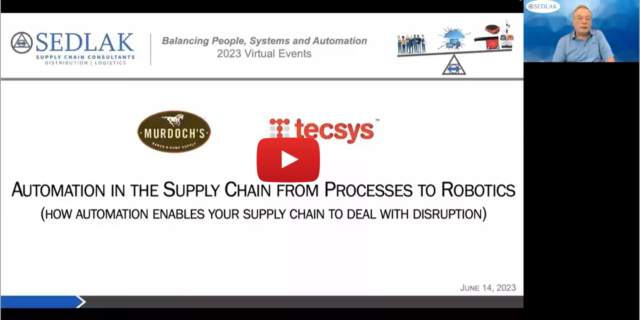Modular Construction: How Does it Impact the Supply Chain?
November 4, 2019 Topics:By Sedlak Manager Charles Albertone
 We’re all seeing how modular construction is becoming more and more of a requirement on many job sites. It makes sense: contractors pre-assemble components in a controlled manufacturing environment, which improves quality, and delivers them to the project ready-to-install. It protects the project schedule from weather delays and waiting for parts to arrive, and ultimately provides a lower on-site labor cost. Time is money here, as there is a direct cost savings with improved schedules.
We’re all seeing how modular construction is becoming more and more of a requirement on many job sites. It makes sense: contractors pre-assemble components in a controlled manufacturing environment, which improves quality, and delivers them to the project ready-to-install. It protects the project schedule from weather delays and waiting for parts to arrive, and ultimately provides a lower on-site labor cost. Time is money here, as there is a direct cost savings with improved schedules.
Most people think of the housing market when they hear the term modular, or prefabricated, because it originated in the housing sector. In modular construction, trusses are assembled offsite and delivered to the property, erected as a whole by a crane, and fastened in place by a carpenter. This practice has become more and more popular, and now companies are adopting it for their manufacturing and distribution facilities. Modular construction is the future of supply chain, and contractors and suppliers must adapt now to stay ahead of the curve.
Let’s first consider the contractor(s) impacted. Previously, most contractor facilities were glorified garages—places to house their vehicles, equipment, and tools. They could mobilize to a job site, order all the required parts to be delivered and begin the installation process in the field. By default, contractors have been experts in “making it work” in the field. But they aren’t warehouse production specialists. Now, contractors are expected to own larger warehouses with the infrastructure suitable for manufacturing: workstations, racking, management systems, automation, overhead cranes, and many other considerations may be needed. The building power may not suffice.
Contractors now need to design a new process by considering the following: How will we receive parts? How will we staff the workforce needed to assemble components? How will we store product and ultimately get the assemblies shipped? Contractors may want to enlist the help of supply chain consultants, who can:
- Design the operations.
- Determine the process of material handling (including mobile equipment).
- Define the systems needed to support the warehouse.
- Assist with staffing plans.
- Develop an implementation budget.
Independent consulting partners can also work with contractors to form potential relationships with suppliers, which can be beneficial to both parties.
Suppliers are the second group to be impacted by modular construction. They now have to carry more inventory for the pull-planning production demands within the contractor’s manufacturing warehouse. So the supplier either needs a larger warehouse, process improvements or automation to increase capacity in the existing space—perhaps leveraging a satellite warehouse within the contractor’s facility—or some combination of the three.
Third, logistics is affected by this trend. What previously was a relatively full truckload of parts being sent to the project and delivered in one laydown area on the job site now becomes less-utilized trucks needing to deliver to specific areas on the site. What they are delivering now may require cranes or rugged terrain forklifts to unload.
Modular construction will only continue to expand upon its current state. Envision a future in which entire rooms for a hotel or hospital, for example, are assembled in a warehouse to be delivered on-site and set in place as a whole. On-site, most of the effort will be preparing the foundations and then simply connecting the rooms together (mechanical, electrical, plumbing) as they are delivered. Modular construction could also be applied to many other industries such as automotive, where pre-assemblies are delivered to the assembly line and reduce the workers’ time to install.
While there are many challenges to modular construction, its ripple effects on the supply chain industry are inevitable. Those who more effectively react to the change and adapt the quickest will ultimately be the most successful.
Contact Sedlak Manager Charles Albertone at calbertone@jasedlak.com if you have questions about modular construction or need help making the transition by developing a new process.





